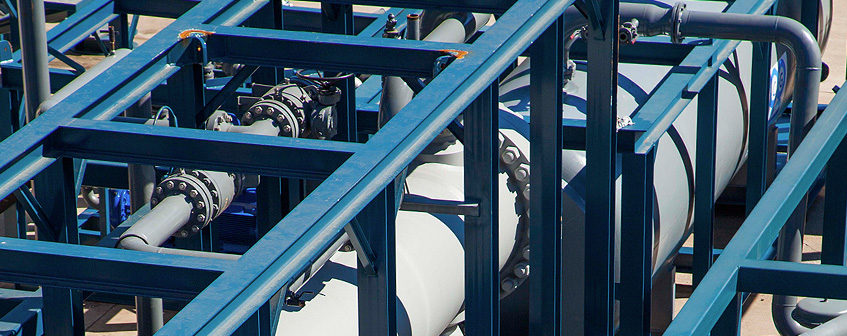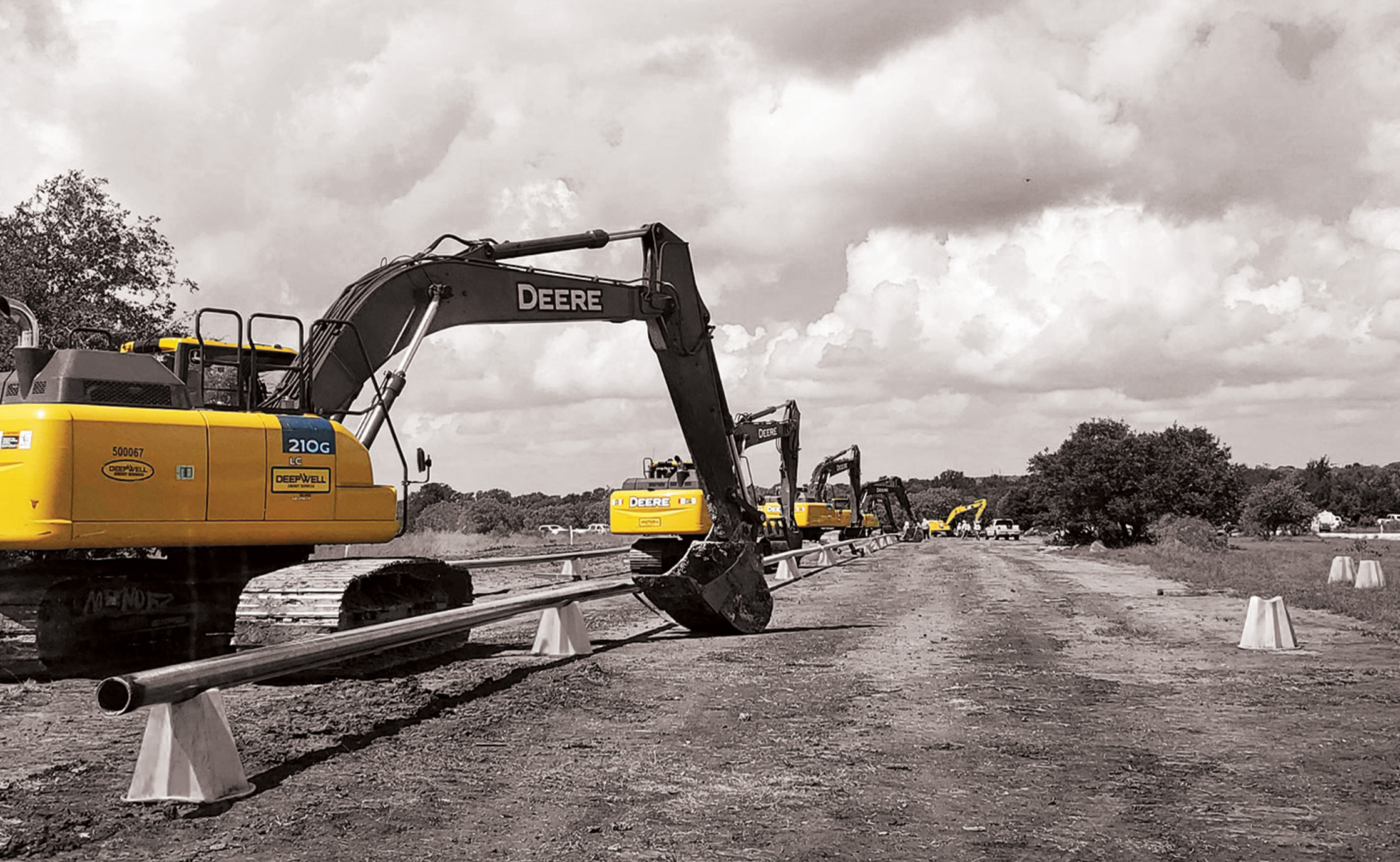Superior Oilfield Rentals Texas: common questions answered before renting
A Comprehensive Guide to the Numerous Sorts Of Oil Field Equipment and Pipeline Equipment Available
The oil and gas industry depends heavily on specific devices for efficient extraction and transportation. Different kinds of equipment, from drilling rigs to tank, play essential roles in this complicated procedure. Each tool serves distinct functions that contribute to general functional success. Comprehending these parts is crucial for any person associated with the field. As the market advances, so as well do the modern technologies that support it. What developments are on the perspective?

Drilling Rigs: The Backbone of Oil Expedition
Drilling rigs function as the necessary machinery in the domain of oil exploration, making it possible for companies to gain access to hydrocarbon reserves hidden deep below the Planet's surface area. These rigs come in various kinds, consisting of land rigs, offshore rigs, and mobile units, each created to run in details environments. Equipped with innovative modern technology, piercing rigs can penetrate geological developments with precision, ensuring efficient source extraction. The structural integrity and functional capacities of these rigs are vital, as they need to withstand extreme problems and significant pressures. The choice of a drilling rig impacts the overall job cost and timeline, making it an important factor to consider for oil business seeking to optimize their exploration efforts and maximize productivity in their operations.
Pumps: Vital for Liquid Motion
In the oil removal process, the function of pumps is considerable, helping with the movement of fluids throughout different phases of production. Pumps are essential for transporting crude oil, water, and various other fluids from below ground storage tanks to the surface area and after that via pipes to refineries. They are available in numerous kinds, including centrifugal, positive displacement, and submersible pumps, each offering certain functions based on the fluid attributes and functional demands. Centrifugal pumps are generally utilized for their efficiency in high-flow applications, while positive variation pumps master taking care of viscous fluids. The selection of pump influences overall efficiency, operational safety, and upkeep expenses. Appropriate selection and maintenance of pumps are important for maximizing manufacturing and minimizing downtime in oil field operations.
Valves: Controlling Flow and Pressure

Valves play an important role in taking care of the circulation and stress of liquids within oil fields and pipelines. Numerous types of valves offer distinctive applications, each designed to accomplish details functions essential for effective procedure - Superior Rentals near me. Recognizing the attributes and uses these valves is necessary for optimizing system efficiency and security
Kinds of Valves
Important elements in oil area procedures, shutoffs play a vital function in regulating the circulation and pressure of fluids within pipelines and equipment. Various kinds of valves are made use of to satisfy the varied needs of oil and gas manufacturing. Common kinds include gateway shutoffs, which provide a straight-line flow and very little pressure decrease; globe shutoffs, recognized for their throttling capacities; and ball shutoffs, acknowledged for their quick on/off control. In addition, check shutoffs avoid heartburn, while butterfly shutoffs supply a lightweight solution for controling flow. Each shutoff kind is made with certain materials and configurations to stand up to the harsh conditions often found in oil areas, ensuring reliability and performance in operations. Comprehending these types is critical for effective system management.
Valve Applications and Features
While various types of valves offer unique purposes, their main applications focus on regulating circulation and stress within oil and gas systems. Shutoffs such as entrance, world, and round valves regulate fluid motion, ensuring peak efficiency and security. Entrance valves are commonly utilized for on/off control, supplying very little flow resistance. Globe valves, on the various other hand, deal exact flow guideline, making them ideal for strangling applications. Ball valves are preferred for their quick operation and tight sealing capabilities. Additionally, pressure alleviation shutoffs are important for protecting against system overpressure, guarding devices integrity. Generally, the ideal option and application of valves improve functional efficiency, making sure the reliable transportation of oil and gas with pipes and handling centers.
Compressors: Enhancing Gas Transportation
Compressors play a critical role in the efficient transport of all-natural gas, making certain that it moves smoothly via pipelines over long distances. These tools increase the pressure of all-natural gas, allowing it to get rid of rubbing and altitude modifications within the pipeline system. Furthermore, compressors facilitate the balancing of supply and demand, suiting changes in consumption and production prices. Numerous kinds of compressors are used in the industry, consisting of centrifugal, reciprocating, and rotating screw compressors, each offering unique advantages based upon the functional demands. Normal upkeep of these compressors is vital to maximize effectiveness and reduce downtime, eventually adding to a reputable gas transportation network. Their crucial function emphasizes the importance of compressors in the overall oil and gas framework.
Storage Tanks: Safe and Reliable Liquid Management
Reliable transportation of all-natural gas depends on various support group, among which is the appropriate administration of tank. These storage tanks play a necessary duty in safely containing fluids, making sure that operational effectiveness is kept while minimizing environmental dangers. Constructed from sturdy products, they are designed to stand up to high pressures and corrosive elements. Effectively sized and tactically located, storage tanks assist in the smooth circulation of gas and various other liquids, avoiding traffic jams in supply chains. Normal upkeep and tracking are essential to find leaks or structural concerns, advertising security and conformity with governing requirements. Eventually, the efficient management of tank is crucial for the overall integrity and integrity of the oil and gas sector's liquid handling systems.
Pipeline Solutions: Facilities for Transport
Pipeline systems serve as the foundation of the oil and gas sector, helping with the effective transportation of hydrocarbons over vast distances. These systems consist of numerous get more info parts, including pipelines, shutoffs, pumps, and compressors, all carefully created to guarantee seamless flow. The materials utilized in pipeline building and construction, commonly steel or high-density polyethylene, are chosen for durability and resistance to rust. Pipeline networks can cover across land and water, connecting manufacturing websites to refineries and distribution. In addition, progressed technology makes it possible for real-time monitoring of flow rates and pressure levels, boosting operational efficiency. The critical placement of these pipelines minimizes ecological impact while making the most of source ease of access, thereby playing a necessary role in meeting power needs worldwide.
Security Equipment: Ensuring Employee and Environmental Defense
The operation of pipeline systems, while necessary for energy transportation, additionally provides substantial safety and security challenges for workers and the atmosphere. Security equipment plays a significant duty in minimizing these dangers. Personal protective devices (PPE) such as headgears, handwear covers, and non-slip footwear safeguards workers from physical hazards. In addition, gas discovery systems keep track of for leakages, making certain that harmful substances do not posture a hazard to employees or the surrounding environment. Emergency situation closure systems are vital for swiftly halting procedures throughout a crisis, avoiding potential calamities. Spill containment products, consisting of absorbents and obstacles, are basic for minimizing environmental impact. Generally, investing in all-encompassing safety tools is essential for keeping functional honesty and securing both workers and the atmosphere in the oil and gas industry.

Frequently Asked Questions
Exactly how Do I Select the Right Oil Field Equipment for My Task?
Picking the ideal oil field equipment includes evaluating task specifications, spending plan restraints, and operational demands. Think about variables such as devices reliability, compatibility with existing systems, and the provider's online reputation to ensure peak performance and safety and security.
What Are the Upkeep Demands for Oil Field Equipment?
Maintenance needs for oil field devices include regular evaluations, lubrication, and timely fixings. Operators should also stick to maker guidelines, monitor performance metrics, and warranty compliance with safety and security regulations to enhance long life and effectiveness.

Just How Can I Guarantee Conformity With Environmental Rules?
To assure conformity with environmental policies, companies need to perform regular audits, execute best techniques, invest in training, maintain correct documentation, and stay upgraded on regulation (Superior rentals squeeze tools). Cooperation with ecological firms can additionally boost adherence to regulations
What Is the Average Life Expectancy of Pipeline Equipment?
The average life expectancy of pipeline equipment commonly varies from 20 to half a century, depending upon elements such as material top quality, ecological problems, and upkeep practices. Regular examinations can significantly influence durability and operational efficiency.
Just how Do I Securely Carry Oil Field Equipment to Remote Locations?
Carrying oil field devices to remote places calls for cautious planning, including path assessment, protecting authorizations, using appropriate cars, and making sure security protocols are complied with. Proper training and interaction amongst teams are crucial for effective transport.